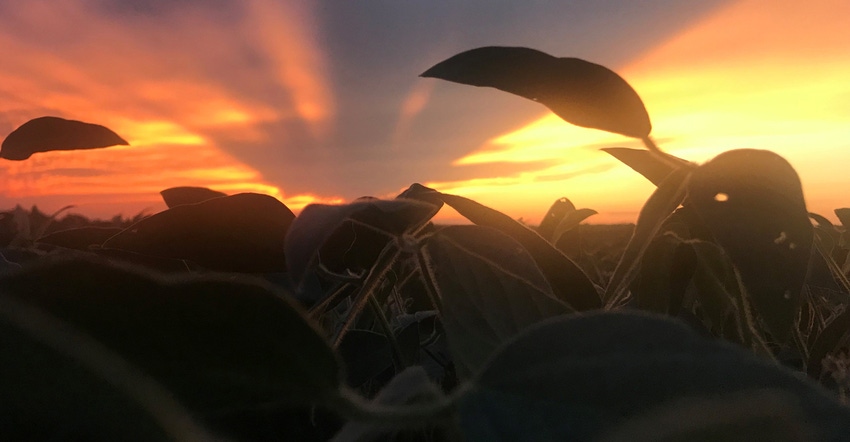June 28, 2021

Sustainability in agriculture is a big topic for today’s farmer, but it can be hard to know where to begin. Ultimately it means meeting the agricultural needs of society in a way that does not compromise the ability of future generations to do the same.
That requires a strong foundation and that we not make year-by-year decisions. It involves environmental, social, economic and even spiritual influences. Think of them like four legs on a table: equally important for human life on the planet. You can’t let one leg take priority over the others or the table is off balance.
Environmental leg. The discussion generally starts with a heavy focus on the environment. From the 1930s Dust Bowl to more recent issues such as climate change and algal blooms in our water system, environmental issues require that we continually learn and modify agricultural practices. New management practices such as reduced tillage, cover crops, and adjusting fertilizer rate or timing protect our soil and crop nutrients. Farmers’ willingness to adopt and document such practices helps assure the public that they, too, are supporting sustainable agriculture through the products they buy.
Social leg. Strong relationships among farmers, landowners and consumers are a critical part of the social leg. Most farmers enjoy friendships that span years and generations. Unfortunately, competition can stifle collaboration.
As I have researched and gained experience with organic farming, I have noted a strong sense of collaboration among its stakeholders. Setting aside any disagreements about agronomic sustainability in organic production, this culture of sharing lessons learned is commendable. It’s a sustainable practice, too.
Relationships in agriculture don’t stop at the edge of the town or county. They go wherever our crops go. A mentor of mine often says “trust is so efficient,” which can be modified to “trust is so sustainable.” For example, the lease for my house in college was no more than a single page because the landlord and I knew and trusted each other.
Similarly, for people who sell directly to end users, trust is built through ongoing relationship. If you have producers and consumers who never meet each other, it’s harder to build trust. Enter third-party certifications to provide assurance between the farmer and consumer. Pursuing a piece of paper to certify production practices may seem unnecessarily formal for a farmer who has always operated on handshake agreements, but in our connected — and yet so disconnected — world, certification is an opportunity to build trust.
Economic leg. Improving the financial picture in the economic leg of agriculture comes in three main ways for a farmer: higher commodity prices, increased crop yields or lower input costs. For the past several decades, we have held the chemical components of crop production out of balance with the biological. If we pursue healthier soil, all three of these areas (price, yield and cost) can improve.
Research shows that healthy soil cycles nutrients and feeds plants more efficiently while responding to dynamic weather patterns with more resilience. These are big factors in producing a successful crop. Once the crop is produced, it comes down to marketing. If leveraged, crops raised with a focus on soil health can garner a premium price because this holds extra value in the eyes of today’s consumers.
Spiritual leg. Sustainable agriculture should be a win-win for all people everywhere — which sounds impossible. But take a step into the final leg for a moment: the spiritual. A loving God created agriculture, and it’s how he chose to physically sustain mankind. He would not have created it with any other vision in mind! Let’s respond to that creative power by pursuing trust and collaboration in our relationships, and by pursuing clean air and water through our land management techniques.
The pocketbook benefits will be the icing on the cake — or the earthworm in the cover crops!
Waibel is a farm manager with Waibel Farmland Services, Mahomet, Ill., and is a member of the Illinois Society of Professional Farm Managers and Rural Appraisers. Email questions to [email protected]. The opinions of this writer are not necessarily those of Farm Progress/Informa.
You May Also Like




